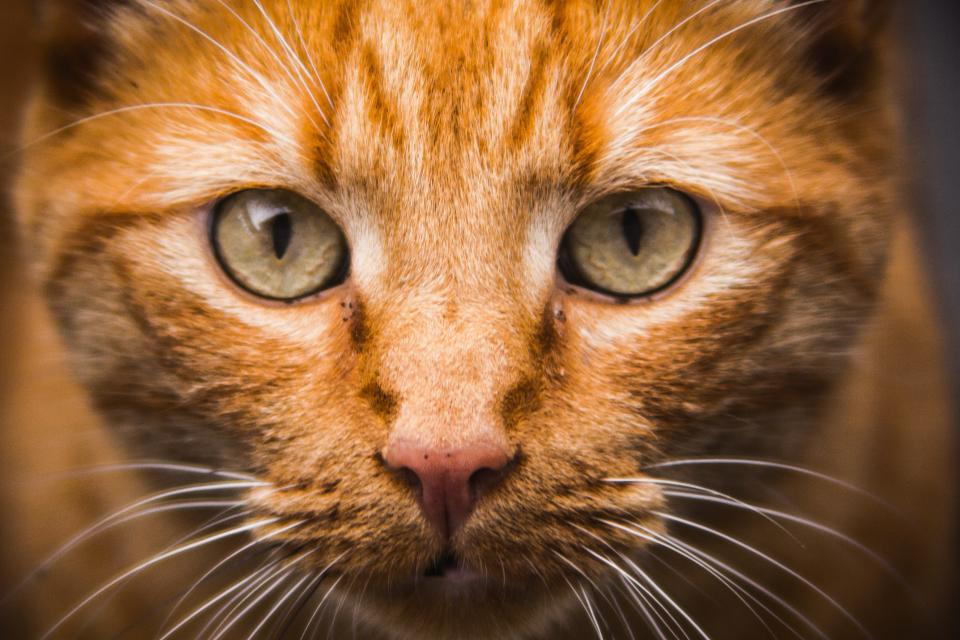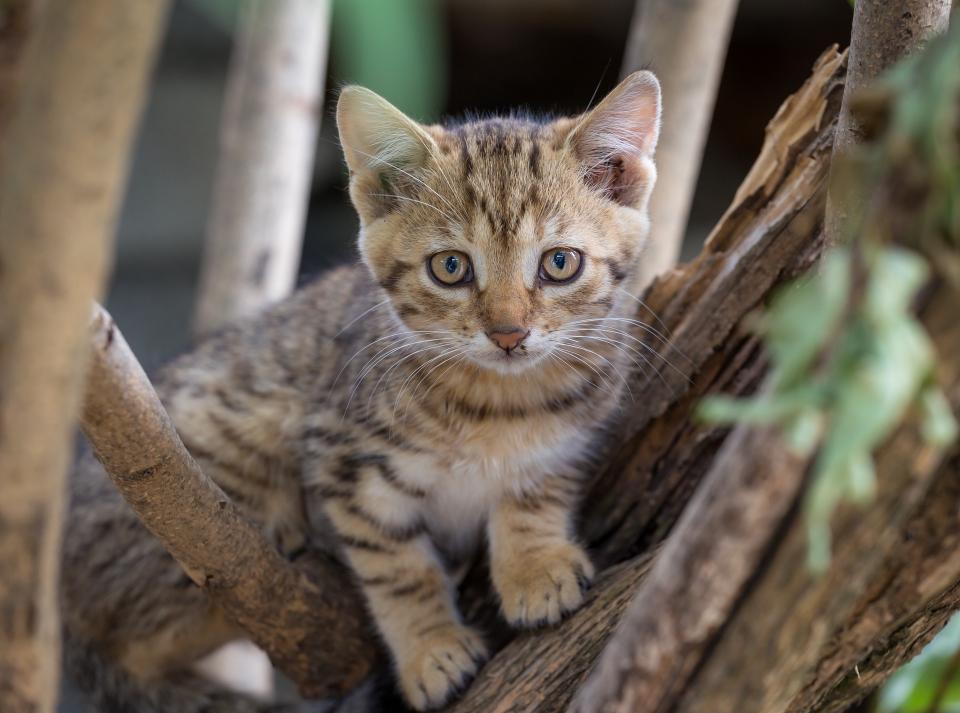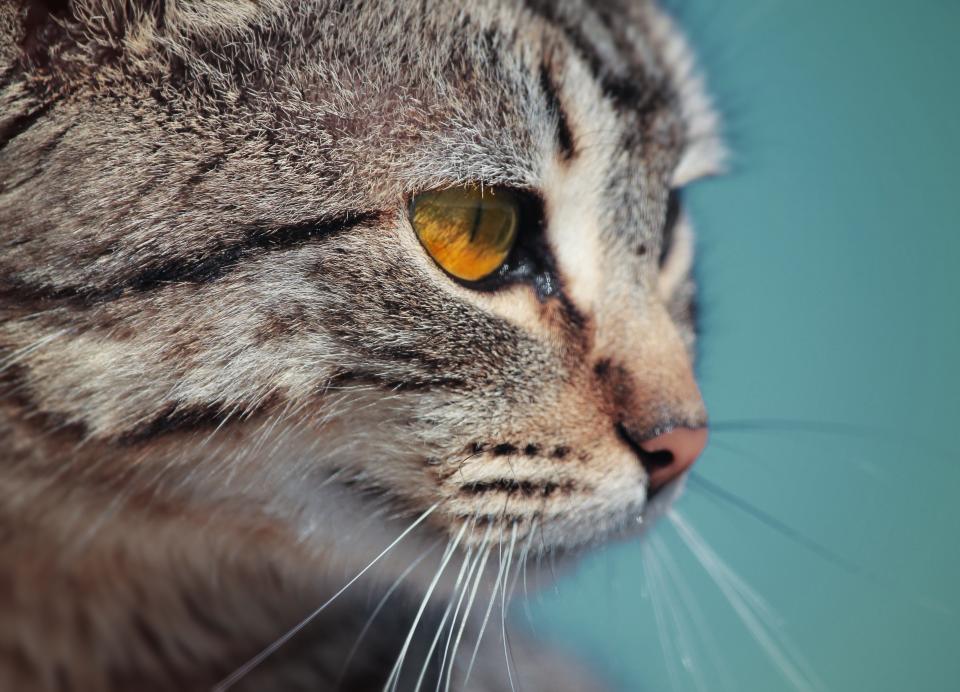The Savannah cat, a captivating breed with its wild-like appearance and playful personality, often sparks curiosity regarding its scent. While their exotic nature may lead to assumptions about a strong, musky odor, the truth is more nuanced. This article will explore the multifaceted world of Savannah cat scent, debunking myths, revealing the factors that influence their odor, and offering practical tips for managing any potential smells.
Part 1: The Savannah Cat's Heritage and Scent

1.1. Serval Ancestry: A Legacy of Musky Scents
The Savannah cat's wild ancestor, the serval, is a striking African wild cat known for its elegant physique and its distinctive musky scent. This scent serves as a form of communication within their social structure, playing a role in territorial marking, attracting mates, and identifying individuals. The serval's scent glands, particularly those located near the anus and flanks, release pheromones that convey crucial information to fellow servals.
1.2. Hybridity: Dilution of the Serval Scent
The Savannah cat, a hybrid between a domestic cat and a serval, inherits a portion of the serval's genetic makeup, including its scent profile. However, the degree of dilution varies significantly depending on the generation. F1 Savannahs, the first generation hybrids, typically exhibit the most pronounced serval-like odor. As generations progress, the dilution of the serval genes results in a weaker and more subtle scent.
1.3. The F1 Savannah: A Stronger Scent Profile
F1 Savannah cats, often referred to as "first-generation" Savannahs, are the closest to their wild ancestor. These cats may possess a more noticeable musky scent reminiscent of their serval heritage, particularly during their breeding season. This stronger scent is a natural consequence of their higher percentage of serval genes.
1.4. Subsequent Generations: A Gradual Dilution
As the Savannah cat line progresses through generations, the dilution of the serval genes leads to a gradual reduction in the intensity of their scent. F2 Savannahs, with a 50% serval bloodline, tend to have a milder scent compared to F1s. F3s and subsequent generations experience further dilution, with their scent often becoming indistinguishable from domestic cats.
Part 2: Factors Influencing Savannah Cat Odor

2.1. Diet: The Power of Food Choices
The type and quality of food a Savannah cat consumes have a significant impact on their scent. A diet rich in protein and animal-based ingredients, particularly those containing fish, can contribute to a stronger musky scent. Conversely, a balanced diet with controlled protein levels and a focus on high-quality ingredients can help minimize odours.
2.2. Specific Ingredients: Key Contributors to Scent
Certain ingredients found in commercial cat food can amplify a cat's scent. Byproducts, fillers, and artificial flavors can exacerbate musky odours. Opting for food with meat as the primary ingredient, limited fillers, and minimal artificial additives can contribute to a more pleasant odour profile.
2.3. Hormones: Seasonal Variations in Scent
Savannah cats, like other felines, experience hormonal fluctuations throughout the year, particularly during their breeding season. These fluctuations can lead to a more pronounced scent, especially in females, as their bodies release pheromones to attract mates.
2.4. Stress and Anxiety: The Impact on Scent
Stress and anxiety can trigger hormonal responses in Savannah cats, potentially leading to an increase in their scent. Providing a safe and stimulating environment with adequate enrichment, play time, and scratching posts can help alleviate stress and maintain a more balanced odour.
Part 3: Managing Savannah Cat Odor: Practical Tips

3.1. Diet Management: Choosing the Right Food
Selecting a high-quality cat food specifically designed for Savannahs or active breeds can help regulate their odor. Opt for foods with controlled protein levels, limited fillers, and a focus on real meat ingredients. Consulting with a veterinarian to determine the optimal diet for your Savannah cat is always recommended.
3.2. Regular Grooming: Maintaining Cleanliness
Grooming a Savannah cat's coat regularly with a brush or comb helps remove loose hair and dirt, reducing the build-up of odours. The Savannah's coat, often described as a "soft suede" texture, benefits from regular brushing to maintain its luxurious appearance and minimize scent buildup.
3.3. Litter Box Maintenance: Ensuring Hygiene
Using a quality litter box with a deep enough pan and appropriate litter is essential. Scoop the litter box daily and replace the litter regularly to prevent unpleasant smells. Consider using low-dust, odor-control litter specifically designed for cats with sensitive noses.
3.4. Professional Grooming: Addressing Odour Concerns
If you find your Savannah cat's scent to be particularly strong or bothersome, consider taking them to a professional groomer. They can provide specialized bathing and grooming services using pet-friendly shampoos designed to minimize odours while maintaining the cat's skin and coat health.
Part 4: Dispelling Misconceptions about Savannah Cat Odor
4.1. The Myth of "Smelly Savannahs": Debunking Stereotypes
The misconception that all Savannah cats are "smelly" is simply untrue. While some Savannahs may have a more noticeable scent, this is not a universal trait. The majority of Savannah cats do not possess a strong or offensive odour.
4.2. Comparison to Other Breeds: A Matter of Perception
It's important to compare Savannah cat odours to other breeds. Some breeds, such as Maine Coons or Persians, are known for having a distinctive scent. In contrast, Savannahs tend to have a more subtle odour, often comparable to other domestic cats.
4.3. Individual Variations: A Spectrum of Scent Profiles
Just like humans, individual Savannah cats can have unique scent profiles. Some cats may possess a more noticeable scent than others, while some might have a barely discernible odour. This variation is influenced by factors such as genetics, diet, and overall hygiene.
Part 5: FAQs
5.1. Do Savannah cats smell like wild animals?
While Savannah cats have a wild ancestor, their scent is typically milder and less intense than that of wild animals. Their odour is often described as a subtle musky or earthy aroma.
5.2. Are Savannah cats smelly compared to other breeds?
Savannah cats generally have a comparable odour to other domestic cats. Some breeds might have a stronger scent, while others might be less noticeable.
5.3. Can I prevent my Savannah cat from smelling?
While you can't completely eliminate their scent, you can minimize it through a combination of diet, grooming, and environmental factors.
5.4. Is it normal for Savannah cats to smell during breeding season?
Yes, Savannah cats can have a more pronounced scent during breeding season due to hormonal fluctuations. This is a natural process that helps them attract mates.
5.5. What if my Savannah cat's odour is strong or offensive?
If your Savannah cat's odour is bothersome, consult with your veterinarian. They can rule out any underlying medical conditions and recommend appropriate measures to address the issue.
5.6. Can I bathe my Savannah cat?
While Savannah cats enjoy water and may even be adept swimmers, regular bathing is not always necessary. Their coat has a natural waterproofing ability, and excessive bathing can strip away essential oils. However, if you do need to bathe your Savannah cat, use a pH-balanced shampoo designed for cats.
5.7. Do Savannah cats have a unique odour when they are stressed or anxious?
Yes, stressed or anxious Savannah cats may exhibit a more pronounced scent due to hormonal fluctuations. Providing a safe, enriched environment with adequate play time and scratching posts can help alleviate stress and maintain a more balanced odour.
5.8. What are the best litters for Savannah cats?
Savannah cats tend to be sensitive to strong scents. Opt for low-dust, odor-control litters made from natural materials like clay or wood. Avoid litters with fragrances that could irritate their sensitive noses.
Everyone is watching
-

Are Cat Ribs Flexible? Understanding Their Anatomy
CATS & KITTENSThis article delves into the fascinating world of feline anatomy, exploring the flexibility of cat ribs and ho...
-

Can Cats Eat Bananas? (Everything You Need to Know)
CATS & KITTENSThis article dives into the intriguing question of whether cats can safely enjoy the sweet, yellow fruit, bana...
-

Cat Lifespan: How Long Do Cats Live?
CATS & KITTENSThis comprehensive guide explores the factors influencing the lifespan of our feline companions, providing ins...
-

Can Cats Get COVID-19? What You Need to Know
CATS & KITTENSThis article will delve into the fascinating world of feline COVID-19 susceptibility. We'll explore whether ca...
-

Can Cats Eat Eggs? A Complete Guide to Egg Safety for Your Feline Friend
CATS & KITTENSWhen it comes to treating our furry companions, we all want to ensure we're doing what's best for them. Eggs...
